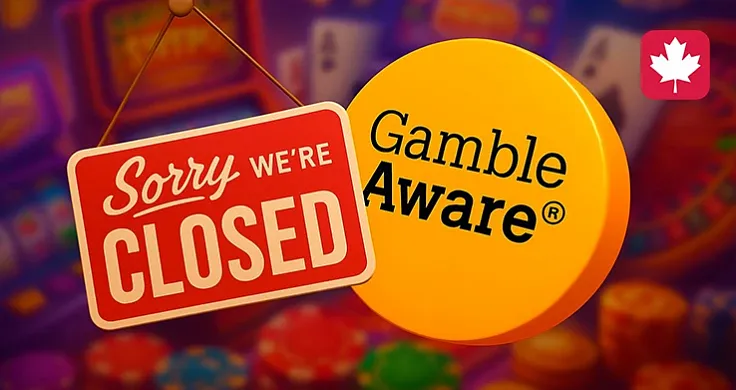
Gambling Aware Shutdown: What's Really Happening and How It Will Affect Players
If you are at least a little familiar with the topic of gambling in the UK, then you have probably heard about GambleAware, an organization that has been fighting gambling harm and helping addicts for many years. But here's the news: GambleAware is closing. The reason is a new mandatory government fee from gambling operators.
If you look at everything from the point of view of an ordinary player, the story looks quite strange. On the one hand, casinos and bookmakers pay money to this company — and on the other hand, GambleAware must make sure that these same operators do not make people addicted. As if bees have to fight with the honey that they produce themselves.
What is this new collection and who will help now?
Previously, operators voluntarily gave money to GambleAware, which, in theory, distributed it for assistance, research and prevention. Now the state forces everyone to pay a mandatory tax - up to 100 million pounds a year.
The NHS (National Health Service) and other government agencies will now work with this money. It turns out that GambleAware is not needed as an intermediary — it is simply closed.
In theory, it sounds logical: the money goes directly to state bodies, which must organize treatment and support. But there are nuances.
Linked materials
Why does all this look like a farce?
- Who controls whom?
Casinos pay money to "fighters against the game". It looks as if a fox is guarding a chicken coop. It is not surprising that many doubt the sincerity of such structures. - The departure of specialists and staff shortages
GambleAware was a serious organization with experience and experts. Because of the reforms, many leave, and who will stay is a big question. - Government structures are not always faster and more efficient.
The NHS is a huge and overburdened system. Tackling gambling harm may not be a priority, making it harder for people with problems to get support. - Promises and reality often diverge
The state promises to improve the situation, but in practice, reforms are always pain, misunderstandings and disruption of services.
Why did this whole story always raise doubts?
The idea that gambling operators themselves allocate money to combat gambling harm has always looked rather naïve. It's like cigarette manufacturers paying a company that fights smoking. They are interested in people playing — and more.
Now, when the state intervenes and forces you to pay the tax directly, it seems that the situation is changing. But the closure of GambleAware shows that the whole system is basically a rearrangement of the pieces, not a real fight against the problem.
In the end, the players are left in the role of those who are forced to trust the system, which is sponsored by those who actually benefit from their problems.
Inference
The closure of GambleAware and the introduction of a new government fee are large-scale changes that can provide both pros and cons. In the long term, there will be more money and formal control, but in practice there is a risk of worsening care due to the departure of experienced professionals and the overload of the NHS.
And most importantly, do not forget that as long as the system exists at the expense of operators' money, it is difficult to expect a truly independent and impartial fight against gambling damage. For players, this means being more attentive to themselves and not hoping that someone will "save" automatically.




celese Haha, classic! First they screwed over the players, then the license turned out to be fake, and now they’re trying to undo everything. A total circus. Yeah, everything will just get bought. They’ll pay whoever they need in Curaçao and get a new license. Money rules everything, especially in this industry.



Mangarin4ik The section about how casinos fire VPNs is a gun. I've never thought about WebRTC and the time zone. Author, thank you, you may have just saved my next deposit.






































Thank you for the honest analysis, not like they say on TV!
Players should take more care of themselves rather than rely on systems.
I wonder how much money from this tax will really reach the victims?
What difference does it make as if your money
The departure of specialists is bad.
I will never believe that casinos are really interested in helping.